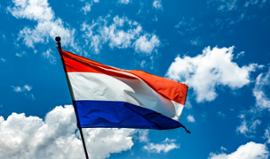Summary
- The Dutch Gambling Authority has expressed concerns about operators' Responsible Gambling interventions.
- A recent study aimed to determine the factors that influence gambling behavior and the amount of money individuals lose before seeking assistance.
- Significant financial losses are not the sole reason people quit gambling or seek assistance.
The Kansspelautoriteit and the Anonymous Gamblers organization conducted a survey targeting individuals participating in self-help groups. The aim of the survey was to gain insights into participants' gambling habits, key motivations, and their progress after joining groups designed to help them combat their harmful gambling addiction.
Interventions may not be coming on time or ever
The survey explored several aspects of gambling behavior, including whether individuals have ceased gambling, if they are using unregulated websites, the reasons behind these behaviors, their experiences with gambling operators, and whether they have received any intervention assistance. Out of 139 respondents, 68% reported that they had not received any intervention from operators personally. Additionally, 83% indicated they had never been banned from gambling due to their activities. Participants also noted that the temptation to gamble remains high, as the legalization of online gambling allows immediate access to websites. The prevalence of gambling advertisements across various media has also been a significant challenge for many. Nevertheless, there are encouraging signs. The survey conducted by AGOG and Kansspelautoriteit revealed that more than half of the participants who joined AGOG-supported self-help groups have successfully stopped gambling.
Big losses are not the only trigger for stopping gambling
Regarding the participants in self-help groups, half reported losing €50,000 or more. Interestingly, 25% of all respondents indicated they had lost less than €1,000 before realizing they needed help. Those who joined AGOG's self-help group did so for various reasons, including financial and personal issues that prompted them to seek assistance. Additionally, two-thirds of participants are receiving support from institutions specializing in treating addictive behavior. Notably, 81% of the participants began gambling before the age of 24, and 46% were under 18. This trend aligns with Kansspelautoriteit's efforts to prevent younger individuals and those below the legal gambling age from being targeted by gambling companies. Interviewed players admitted to gambling both legally and illegally. Many resorted to illegal gambling because they were self-excluded through Cruks, leaving offshore operators as their only option to register and play. This situation highlights the inferior player protection provided by offshore companies.





























